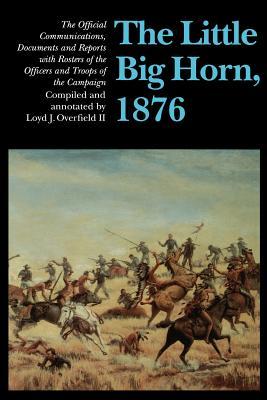The communications of this collection begin with Custer's successful plea to President Grant, who in a fit of pique had originally forbidden him to join his regiment in fighting the hostile Indians. A series of carefully spelled-out field orders is followed by a letter from Major Marcus Reno asking for medical aid for his wounded men after two days of fighting. Included are dispatches from Reno, Gen. Alfred H. Terry, Col. John Gibbon, Capt. Frederick Benteen, and Capt. E.W. Smith. The rosters of officers and enlisted men who fought at the Little Big Horn will be of interest to Custer buffs and historians and also to family genealogists trying to trace ancestors who made history there. Overfield has provided primary sources that amount to a detailed postmortem of events from participants only too aware that history would ask questions.

The Little Big Horn, 1876: The Official Communications, Documents and Reports
The communications of this collection begin with Custer's successful plea to President Grant, who in a fit of pique had originally forbidden him to join his regiment in fighting the hostile Indians. A series of carefully spelled-out field orders is followed by a letter from Major Marcus Reno asking for medical aid for his wounded men after two days of fighting. Included are dispatches from Reno, Gen. Alfred H. Terry, Col. John Gibbon, Capt. Frederick Benteen, and Capt. E.W. Smith. The rosters of officers and enlisted men who fought at the Little Big Horn will be of interest to Custer buffs and historians and also to family genealogists trying to trace ancestors who made history there. Overfield has provided primary sources that amount to a detailed postmortem of events from participants only too aware that history would ask questions.